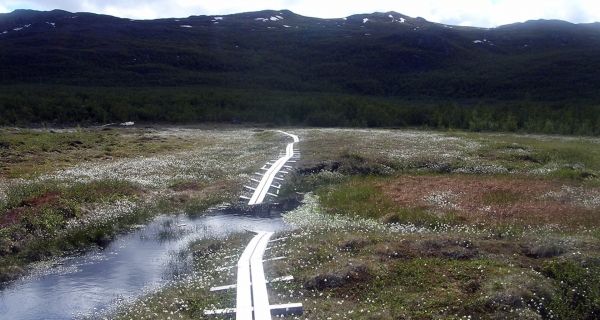It will focus on better understanding ecosystem and climate interactions — such as the thawing of the Arctic permafrost — and how they can alter everything from the landscape to greenhouse gases.
EMERGE, which stands for “EMergent Ecosystem Response to ChanGE,” is a five-year project that will concentrate on discovering how the processes that sustain life and enable biological innovation operate and interact — from molecules and cells to species and ecosystems — under dynamically changing conditions. The end result will be a new “genes-to-ecosystems-to-genes” framework to create models that could help predict ecosystem response to change.
The research will be done in Stordalen Mire, a long-studied peatland in northern Sweden where permafrost thaw drives changes in the landscape, plants and microbes. The institute, launching in September, will also have a strong training, education and outreach component and will involve biologists at the postdoctoral, graduate and undergraduate levels.
Continue reading at Colorado State University
Image via Colorado State University


